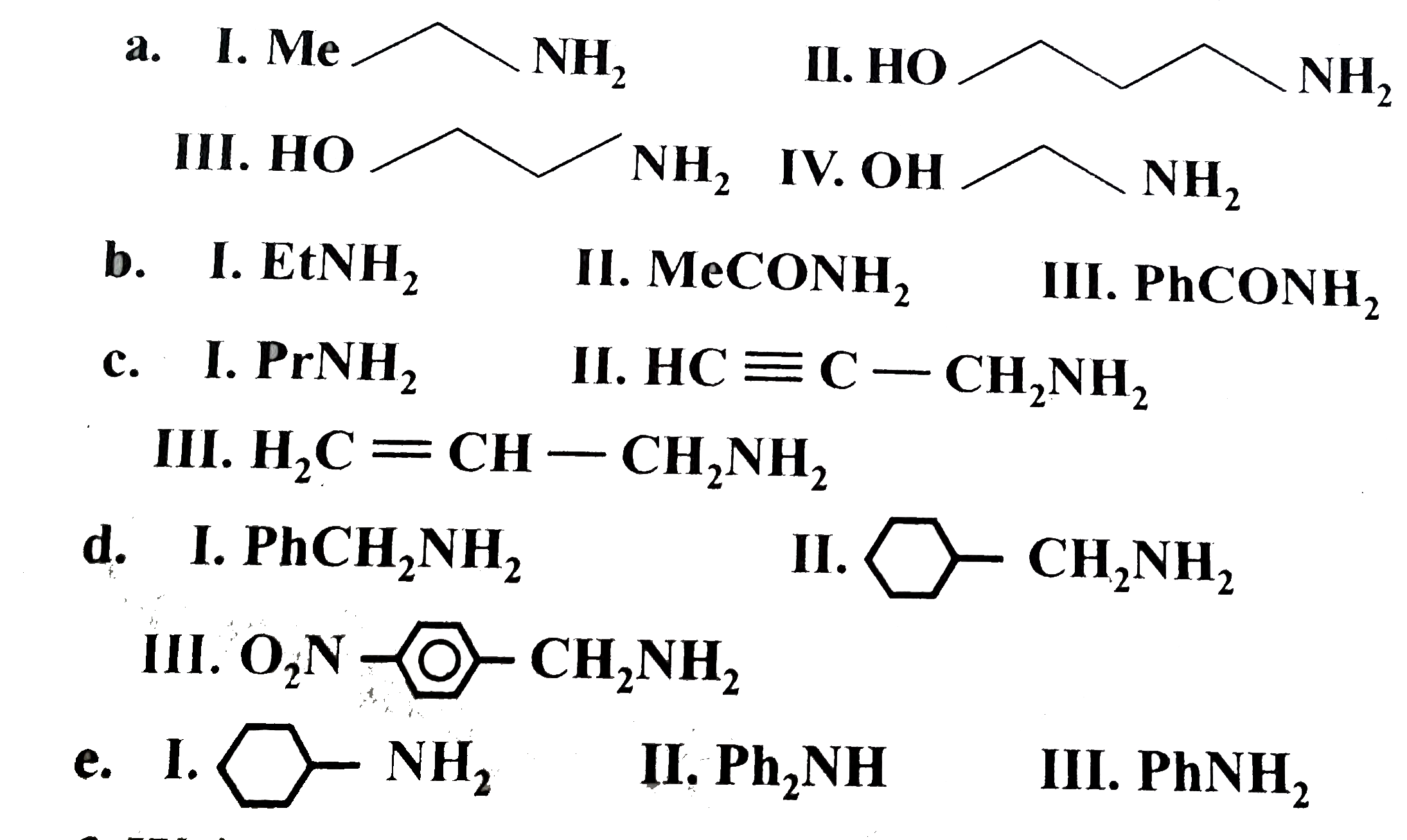Conjugate acid of NH−2 is
NH2OH
NH3
N2H4
NH+4
To find the conjugate acid of NH−2, we can follow these steps:
Step 1: Understand the Concept of Conjugate Acids and Bases
A conjugate acid is formed when a base accepts a proton (H+). Conversely, when an acid loses a proton, it forms a conjugate base.
Hint: Remember that the addition of a proton to a base results in the formation of its conjugate acid.
Step 2: Identify the Base
In this case, NH−2 (the amide ion) is acting as a base.
Hint: Recognize that NH−2 is a negatively charged ion, which indicates it can accept a proton.
Step 3: Add a Proton to the Base
To find the conjugate acid, we need to add a proton to NH−2:
NH−2+H+→NH3
Hint: When you add a proton (H+) to NH−2, think about how the charge changes.
Step 4: Identify the Resulting Conjugate Acid
The product of this reaction is NH3 (ammonia), which is the conjugate acid of NH−2.
Hint: The resulting species after adding a proton to a base is its conjugate acid.
Conclusion
Thus, the conjugate acid of NH−2 is NH3.
Final Answer: NH3
A conjugate acid is formed when a base accepts a proton (H+). Conversely, when an acid loses a proton, it forms a conjugate base.
In this case, NH−2 (the amide ion) is acting as a base.
To find the conjugate acid, we need to add a proton to NH−2:
NH−2+H+→NH3
The product of this reaction is NH3 (ammonia), which is the conjugate acid of NH−2.
Thus, the conjugate acid of NH−2 is NH3.
Similar Questions
Knowledge Check
The conjugate acid of HPO2−4 is:
AH3PO3BH3PO4CH3PO−4DPO3−4Conjugate acid of SO2−4 is
AHSO−4BH+CH2SO4DSO2−4
The conjugate base of NH−2 is
View SolutionConjugate acid of HPO2−4, is
View SolutionCalculate the ionic constant of the conjugate acid of NH3. given k_(b) is 1.77 x 10^-5
View SolutionArrange the following in decreasing order of basicities :

(f) Write the conjugate base and conjugate acid of (I)HOCH2CH2NH2.
View SolutionThe conjugate acid of HPO2−3 is
View SolutionConjugate acid of PO−34 is
View Solution
